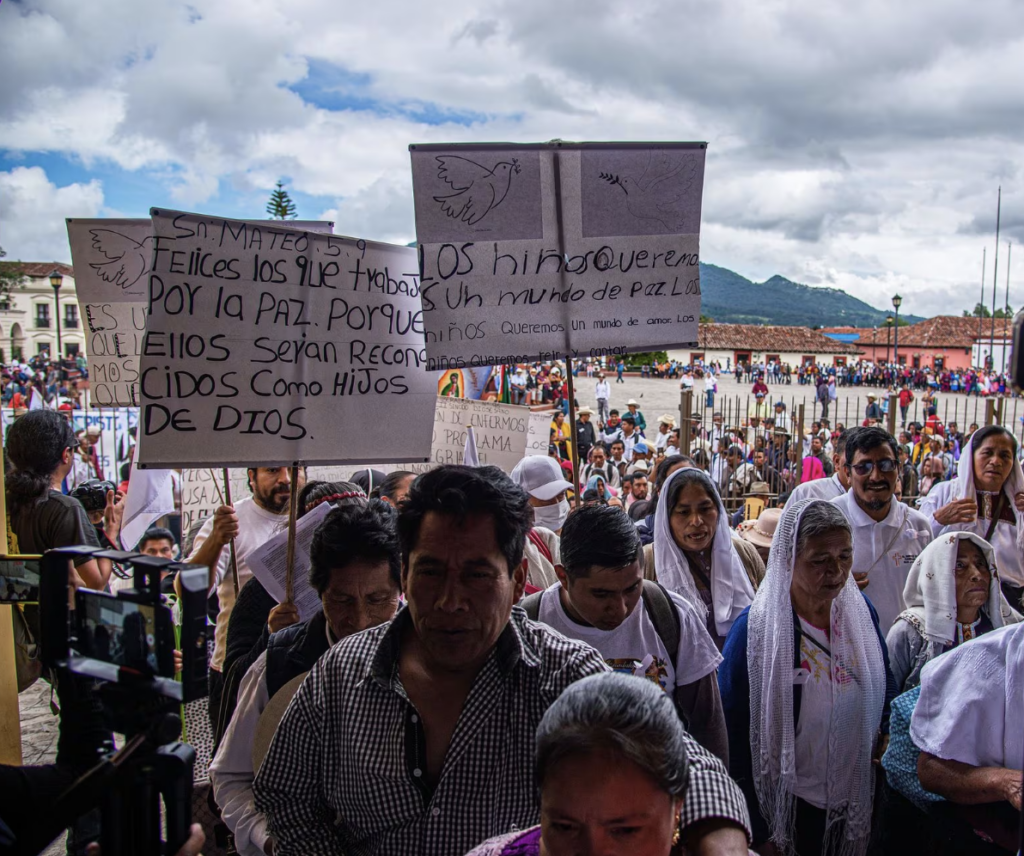As reported by Steve Fainaru and William Booth, The Washington Post:
APATZINGAN, Mexico — In farm towns across the hot, fertile state of Michoacan, famous for its mangos and marijuana, residents are used to seeing military patrols rumbling through their streets. But until late last month, they had never seen soldiers descending on City Hall.
After surrounding the whitewashed building in Apatzingan’s central square, masked troops armed with AK-47 assault rifles marched up the stairs, past florid murals depicting Mexico’s revolutionary past, and arrested the mayor, Génaro Guízar Valencia, a 62-year-old U.S. citizen who had spent 35 years in Northern California and returned to Michoacan in the 1990s.
Authorities accused Guízar — and more than two dozen other officials throughout the state — of working for La Familia Michoacana, an ascendant drug cartel guided by a messianic cult that promises to protect the poor while meting out “divine justice” to its enemies, including rituals in which executioners carve cryptic initials in their victims’ foreheads.
“I’m an honest man,” the mayor said, speaking by telephone from a Mexico City detention facility. “I haven’t done anything wrong.”
U.S. and Mexican officials said La Familia now dominates the drug trade in Michoacan and maintains a very strong presence in a dozen American cities, including Chicago, Atlanta and Dallas. The unprecedented sting operation here revealed that, in response to President Felipe Calderón’s nationwide anti-narcotics strategy, the big drug cartels are splintering and then rapidly reassembling into increasingly resourceful criminal enterprises, capable of penetrating and corrupting government and society.
As one Mexican official put it, the cartels are “evolving,” growing more efficient and resilient.
The arrests May 26 picked up 10 mayors, nine police chiefs and nine senior officials. But as the dragnet was being announced, thousands of residents across the farming belt known as the Tierra Caliente, or hot lands, rose up in protest. Michoacan’s governor, Leonel Godoy, filed a formal complaint with Calderón over what he called “the violent and illegal incursion” by federal authorities. Among those arrested were a close adviser to Godoy, the head of the state police academy and a longtime Xerox executive serving as the mayor of Michoacan’s second-largest city.
“The people are furious,” said Sonia Sánchez, a lime farmer in the town of Buenavista. Protesters occupied and shuttered Buenavista’s town hall after the mayor, Osbaldo Esquivel Lucatero, a physician and popular soccer coach, was arrested when he showed up for work.
While a dance troupe practiced on a nearby stage in the main plaza, Mariano Perez, a 46-year-old painter, stood guard outside Buenavista’s government building. The doors will remain chained shut until the mayor is released, he said. Among the placards plastered on the facade in support of Esquivel was one from high school students that read: “We demand the authorities respect individual rights!”
Godoy, the governor, said in an interview that the popular backlash threatens to undermine counter-drug operations in Michoacan, a key transit hub where at least six cartels now compete, employing 45,000 people, according to one estimate. “When the state and federal governments fight, the only ones who win are the criminals,” he said.
Godoy called the operation “necessary” but said he was outraged that the federal government did not warn him of it. The first the governor knew about the raids was when his security adviser was arrested, followed by his top agent at the state Interior Ministry. The message was clear: Federal authorities did not trust Godoy, whose brother, a candidate for Mexico’s Congress, recently gave officials a statement denying any connection to traffickers after an opposition party accused him of being on the cartel payroll.
“Underlying all of this is money, the unquenchable thirst for money,” said the Rev. Miguel López, a Catholic priest in Tepalcatepec, where the mayor — the brother of a local drug baron known as the Grandfather — was among those arrested last month. “It is this thirst for money that drives all of this: the government officials who collude and allow themselves to be corrupted and the organizations that kill and commercialize human life.”
Story by Steve Fainaru and William Booth continued..




